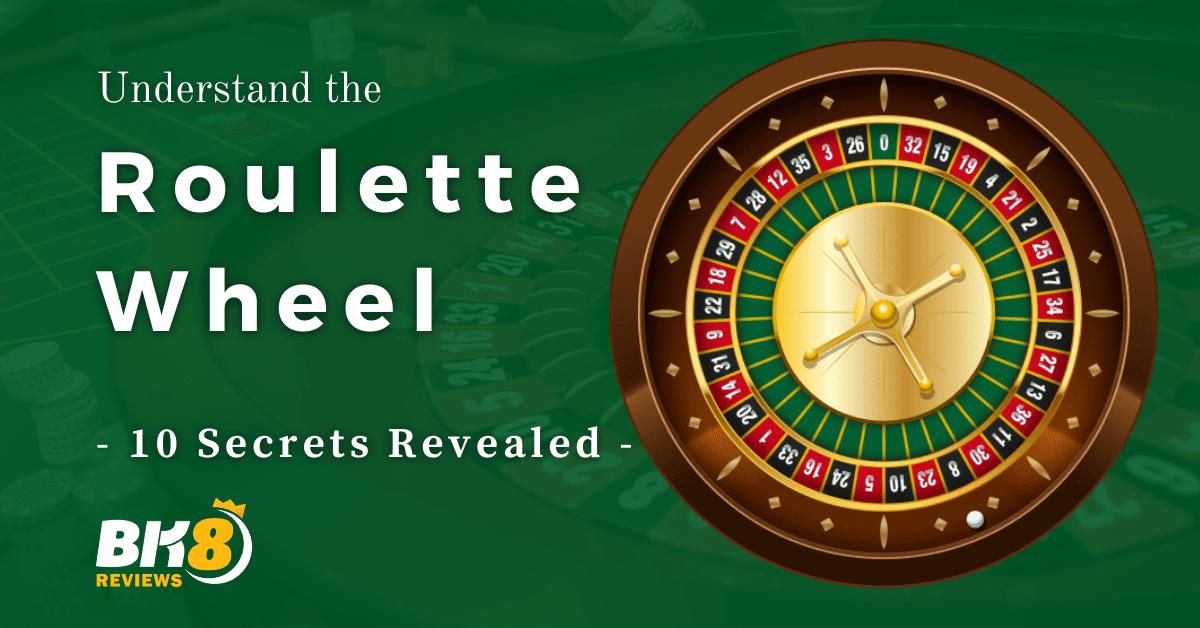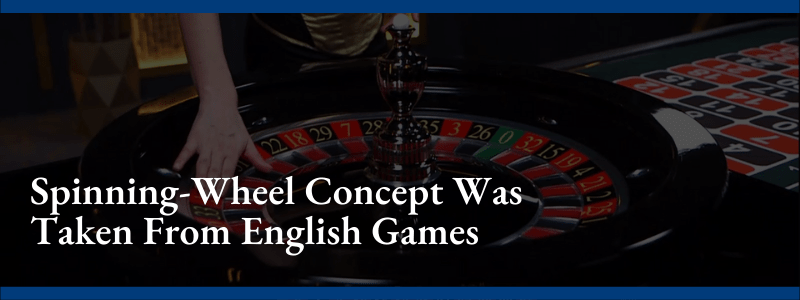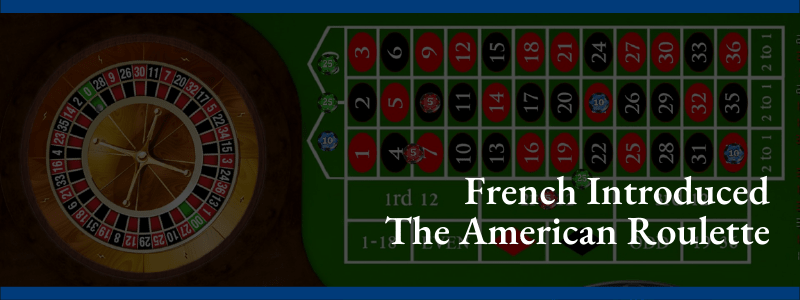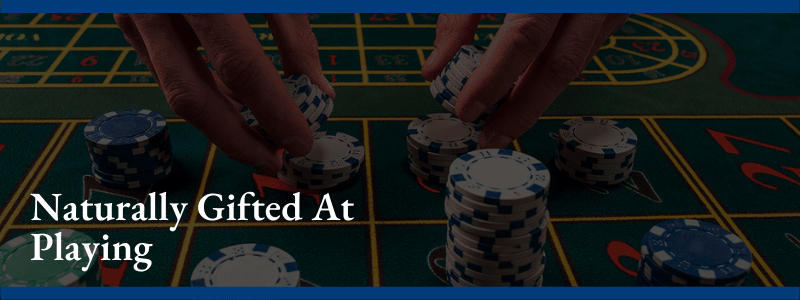Understand the Roulette Wheel: 10 Secrets Revealed

Understanding the roulette wheel is difficult and daunting for anyone, but this article will help you understand it. With a breakdown of the numbers and probability, as well as some insider tips and tricks that successful players use to increase their odds of winning. But you’re in luck! We’ve got 10 secrets about roulette that will help you decide which casino is right for you.
Table of Contents
#1. The Spinning-Wheel Concept Was Likely Taken From English Games

Despite the fact that roulette was allegedly created in France, the spinning-wheel design was most likely adapted from English games. In 1720, the first game that was even somewhat similar to roulette was introduced in England. It was referred to as roly-poly.
A wheel with forty alternate black and white spots, as well as a spinning ball, were used in the event. You may place a wager on either black or white. One of the slots was labelled with the words “bar black.” “Bar white” was another term. That was all; there were no numbers.
It wasn’t until 1758 that a cryptic reference to roulette was stated in a statute issued in New France that the game was officially recognised in France (modern-clay Quebec). Roulette is a French word that literally translates as “small wheel,” but the game was not described in the legislation.
#2. The French Introduced The American Roulette Wheel

When American roulette arrived in Paris in 1796, it was a complete surprise, as recounted in detail by a contemporaneous French writer. No one really knows who created the competition, but it was, in almost every important aspect, the forerunner of our contemporary game from the outset.
There were 38 slots, with the numbers one to thirty-six, zero, and double-zero, to choose between. Two hundred years later, the game continues to exist and flourish despite the absence of any major rule changes.
The double-zero game you play on the Las Vegas Strip, the Atlantic City Boardwalk, or anywhere else is almost similar to the contest that Parisians engaged in during the French Revolution’s guillotine-crazed peak in the 17th century.
#3. There’s A Hidden Number Arrangement In The Original Wheel Design

The fact that the colours red and black rotate on the wheel is obvious to everyone. Even while this seems intuitive, it’s less clear that high and low numbers alternate; pairings of odd and even numbers do not.
In addition, every odd number has an even number that is exactly across the wheel from it. The table is just as beautiful as the chair. It can contain hundreds of different bets, each of which has a different chance of winning, but all of which have the same house edge of 5.26 per cent despite the fact that they are all different.
The game is both brutally methodical and completely random at the same time. It is a wonderful innovation that has been created in complete secrecy.
#4. The German Introduced The European Roulette Wheel

Francois and Louis Blanc, two French brothers, sought to make roulette more enjoyable by reducing the house edge. As a result, in 1842, they changed the numbers on the roulette wheel and introduced the first single-zero roulette table at the new facility in Hamburg (at the time, roulette was considered unlawful in France).
The game became an immediate success, and Hamburg quickly became a popular gambling destination as a result. An item published in the London Daily News in 1868 said that “Homburg was an inconspicuous hamlet.
During the twenty-six years that have passed since its [the casino’s] establishment, a huge gaming palace has been constructed, and the hamlet has been transformed into a town with streets that are well-paved and gas lights… “There are tens of thousands of people who have come to see us.”
#5. The Effect Of Deceleration Rates On Gameplay

Over the passage of decades, many efforts have been made to uncover patterns or, at the very least, to abuse the game’s weaknesses. Roulette wheels are similarly accurate tools that do not age or malfunction in today’s world when producers have access to high-tech equipment. They are also very inexpensive.
Most of the problems that kept casinos up at night were eliminated because of technological advancements, but other issues arose, such as dealing with roulette slowdown.
The term is self-explanatory, and it has something to do with the steadily diminishing pace at which the ball travels around the wheel until it comes to a halt at its temporary resting location. The manufacturers are putting out their best efforts to develop roulette wheels that will not slow down, and the dealers are appreciative of their efforts on their behalf. In this regard, significant progress has been achieved, with the most recent wheels being practically unaffected by deceleration.
#6. The Roulette Ball

The size of the roulette balls is related to the size of the wheel and the number of spaces on the wheel. Major establishments use huge roulette wheels with diameters ranging from 27, 30 and 32 inches. As a result, the balls utilised are 18mm and 21mm in diameter. To make the results far more unexpected, they usually switch between one “little” (18mm) ball and one “large” (21mm) ball daily, well with a non-playing ball remaining on the upper edge of the centre of the roulette wheel, anxiously awaiting its turn. Ivory is the most often used material for casino grade balls, but Teflon is also regarded as a suitable material.
Ivory was once the substance required to make the ancient roulette balls. Today’s balls are referred to as “ivorine,” and they are not made of genuine ivory; instead, they are constructed of a synthetic material that has the appearance and feel of ivory. Highly qualified roulette balls are now being manufactured from a variety of materials, including resin, Teflon, and sometimes even ceramic, in recent decades.
When it comes to the ball, the variations in its size, weight, and substance have a significant effect on the game. A tiny, lightweight ceramic ball makes more revolutions on the wheel path and, as it drops, it bounces more unexpectedly before landing on a number than, for example, a large ivorine ball, which makes more revolutions on the wheel track.
#7. Only You Can Decide Which Bets To Place

Whenever you check the roulette calculations, the house edge seems to be modest. So, what is it about roulette that casinos find so appealing? As more players participate in a game, the casinos are able to offset their losses with their profits. Casinos prefer to pay out just players’ winnings from other participants’ losses, rather than the other way around. As a result, estimating a “house advantage” may lead to errors.
This extreme case demonstrates why the “house advantage” is not all that significant. In European roulette, five participants each placed the bare minimum wager on a separate single number. Their odds of success are 37-to-1 against the spread. If some of those win, he will get a 36-to-1 payout. The casino takes advantage of the losses of the other four players in order to minimise its own losses. As a result, our five participants continue to place single number bets. At the very minimum, the casino is assured to bring in four wagers every time. Then that doesn’t signify if the casino’s probability of winning all five wagers on any one spin is 32 out of 37 since the house always wins. In order to come out winning on the initial 36-to-1 payout, the casino just needs seven wins. The players have a lower chance of winning again within that time period.
As a result, the “house advantage” on a particular bet has less significance in the casino’s financial statements than it would be in yours. As a result, increasing the number of bets you place helps the casino balance its losses against you. As a result, you should always place your wagers on low-risk options when possible.
#8. The Spinner Has A Greater Degree Of Bias Than The Wheel

The possibility of roulette wheels developing “bias” has been raised in the past. The concept is that as a wheel ages, it accumulates wear and tear in specific areas. In addition, certain wheels may have intrinsic defects as a result of the manufacturing method used to create them.
A small group of mathematicians has shown that mobile software can be used to predict where a ball will fall on a biased wheel using a mathematical formula.
Casinos, by their very nature, prohibit individuals from utilising electronic equipment to evaluate games. However, you may still be inclined to search for bias in the hopes of “guessing” the result of the spin by looking for it yourself. This is, without a doubt, the longest of all long shots.
However, if you’re looking for prejudice, you should pay attention to how the individual spins the wheel. Despite the fact that casinos should educate their table games to diversify their activities, you might come across someone who is steadfast in their behaviour.
#9. Some People Are More Naturally Gifted At Playing Than Others

Some individuals are inherently stronger at arithmetic and additional fields than others, but this is not true for everyone. We currently believe that gender prejudice in mathematics is mostly a result of social or cultural factors. Some individuals, on the other hand, seem to be instinctively superior at mathematics and related abilities. That is just the way their minds have evolved.
The possibility that some individuals are capable of detecting bias in roulette wheels is plausible. These few players possess a unique talent that may provide them with an advantage, similar to individuals who are better at remembering lengthy, complex figures than others. However, the reality is that the vast majority of us would never be capable of accurately identifying “bias.”
#10. Automated Wheels

The more frequently individuals’ wager, the more money the casinos earn. They will be more willing to spend more money if they can keep employees for a longer period of time. Live casino table dealers take up a significant amount of time between spins, owing to the fact that they must tally up and payout wins, while also collecting lost bets and ensuring that the table remains fair. This is one of the reasons why automated roulette machines were developed.
Automated roulette wheels are roulette wheels that are controlled by software. Players place their wagers on a touch-screen tablet, and the wheel mechanically rotates the ball into play. Early versions were simple to defeat, but as innovation has progressed, they have grown more unpredictable and, as a result, more difficult to anticipate. For example, in the Camesha Slingshot, after the dealer has announced ‘no more bets,’ the rotor’s speed varies at random, leaving it far more difficult for gamblers to win the game.
It is still feasible to defeat computerised roulette wheels, although the player’s advantage has been reduced by about half in most cases. Consequently, if you usually had a 20 per cent advantage on roulette wheels, the decrease in frequency on the Slingshot might decrease your edge to about 10 per cent. However, despite the fact that this seems to be excellent information for the house, the chances are all still in your favour.
Conclusion
Understanding the tricks of the roulette wheel may help you improve your odds of winning. It goes without saying that you must invest your own time and energy in order to have the greatest chance of success.
When a reader questions if roulette wheels are fair, they should count how many occasions the ball comes into contact with particular-coloured diamonds. Contrary to popular belief, it’s almost difficult to design a roulette wheel without bias.
Gambling establishments have the greatest chance of making games unprofitable by making them unattractive to educated and experienced players and experts. It’s also unrealistic to attempt to master the roulette wheel on a weeknight like a Friday or Saturday when you won’t be able to collect enough data.
Despite this, virtually every wheel can be tinkered with in some manner – you simply have to discover the flaw and know how to exploit it.
Roulette is becoming more difficult to beat as technology advances. Even yet, it doesn’t rule out the possibility of doing what has to be done.
- Tips and Strategies to Win at Sic Bo - January 14, 2022
- Top 7 Helpful Tips for Playing Slot Machines - December 13, 2021
- Learn About Baccarat Rules And Odds - November 19, 2021
